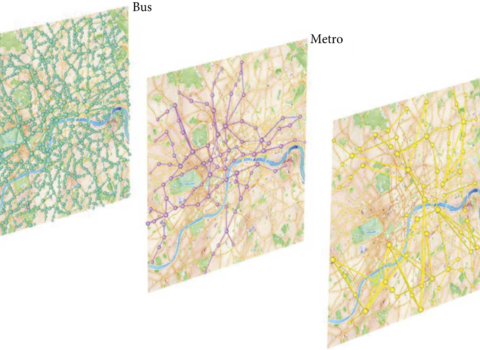
Reducing the spread of contagions with targeted hygiene in crowded environments
FBK has collaborated on a scientific study published in Nature Communications
Cleaning of surfaces, air filters, use of ozone or UV rays. These are all factors that can reduce contagions in very crowded places. But how to use them most effectively? A study just published in the scientific journal Nature Communications, in which researcher Riccardo Gallotti of the Fondazione Bruno Kessler in Trento participated, tried to answer this question.
The experts examined in particular London’s Heathrow Airport, one of the busiest airports in Europe, and developed a method that can easily be extended to other airports, subway and bus stations, and in general to facilities with large crowds, such as shopping malls or convention centers.
For the study, titled “Spatial immunization to abate disease spreading in transportation hubs,” researchers analyzed the routes of people who voluntarily and anonymously chose to share their GPS mobility data. Based on the trajectories, the most critical points were identified and it was seen that prioritizing the sanitizing of specific areas could lead to a more efficient reduction of contagion. For example, concentrating the efforts (through frequent cleaning, air filtration, ozone or ultraviolet rays) on an area equal to 1 percent of the airport could reduce the probability of contagion events by more than 20 percent.
The study was conducted using models of the spread of diseases such as SARS, flu and COVID-19 and taking into account differences between short-stay passengers and airport workers.
“Our model,” Gallotti explains, “can be an effective tool to support the prevention of the spread of future epidemics, allowing risk reduction from the earliest stages and the development of targeted spatial immunization strategies in large environments such as airports, stations or shopping malls. For airports in particular, focusing efforts in identified high-risk areas can limit the number of infections among passengers and staff. These measures could contribute significantly to containing and/or delaying the spread of infectious agents on a global scale, with the ability to intervene at an early stage when the first imported cases at airports have not yet been detected.”
Riccardo Gallotti, head of the CHuB lab Research Unit at FBK, is an interdisciplinary physicist working on data-driven statistical modeling of individual and collective behavior. His research focuses on human mobility, decision making, transportation and data science. He specifically participated in the design of the study, was responsible for the pre-processing and collaborated in the analysis of mobility data.





